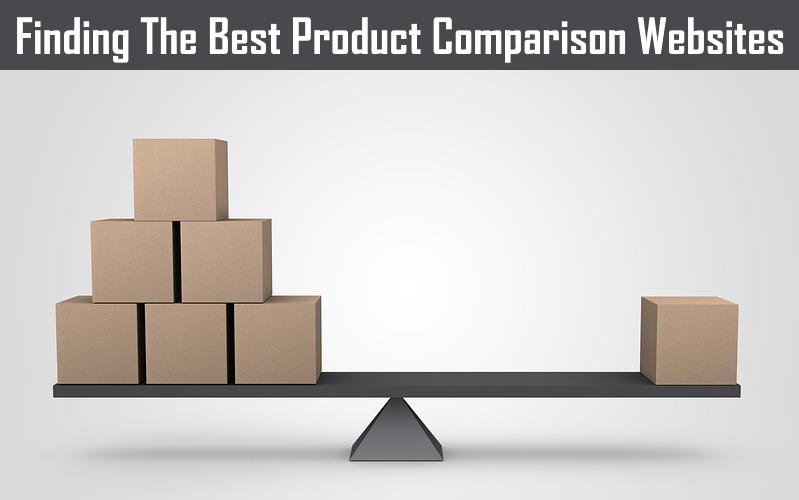
If you're like a growing number of consumers these days, you like to do your research online before buying products for around the home to make sure you're getting a good deal, but with so many recommendation, review and comparison sites out there, how can you know which ones to trust?
For example, you might be looking for a Leaf Blower, Smart Locks, or a safety device like a Carbon Monoxide Detector*, so you type something like "best outdoor gas grill" into a search engine and go from there.
But how do you know if you're getting good advice?
Well I've been in the business of researching, writing, and these days mostly editing, buying guides and product comparisons since 2010 for several websites, so I'll share some tips and advice on how to tell who's advice to take from an 'insiders' point of view.
Here are 5 questions to ask to see if the website you're reading is likely to be reliable.
1. Are They For Real?
Most websites have an about page and you can find links to it at the top or bottom of each page, or from the site's home page.
If the website talks about 'We this' and 'we that' but doesn't actually name any of the people involved in the business then they might not provide the most reliable advice - you should expect people who are giving this type of advice to state clearly who they are and they should be prepared to stand behind their claims and recommendations.
Pro Tip: Businesses that provide a phone number are often more reliable because operators that hide behind 'fake personas' usually won't provide this.
2. Are Their Recommendations Independent?
Some businesses accept sample products from manufacturers which they then review, and by law they are required to disclose this whenever they review a product, or include it in a comparison article.
Although most writers I have worked with will usually try to give the best advice possible, the truth of the matter is that it's very hard to say too many negative things about something when it was given to you for free - it's basic psychology causing the writer to want to reciprocate for the favor they've been given. Be weary of writers and publications that accept gift or demo products or services to review.
Also be aware that if you're reading a comparison guide provided by a retailer or manufacturer that they usually don't consider all the products on the market but frequently only recommend things they happen to sell - be careful with these guides because you may be missing out on information about highly regarded products sold by their competitors. This leads me to my next point...
3. Have They Considered All Relevant Products?
Some websites will only recommend a product if they have a commercial relationship with someone selling it. Don't get me wrong, it is perfectly correct for recommendation websites to earn advertising or affiliate commission fees when someone acts on their advice and makes a purchase.
Where it can go wrong is if they ignore relevant products because they're not getting paid. This is particularly a problem for sites comparing financial products (see this report from Choice Australia), but it happens on all kinds of product comparison sites.
A strong indicator that they really do consider all products fairly is to see if they ever recommend products they're not getting paid for. A good example is a guide I wrote about Drum Sets for Children* - you'll notice there are no commercial links for the first model listed and instead it just has a link to the manufacturer's website where you can find a retailer selling it.
Pro Tip: You won't always have time to look through an entire recommendation site to see if they recommend products they're not being paid for, so another way to test a comparison site's credibility is to see if they have a guide on a topic you know a lot about and see for yourself if there are any obvious recommendations they've left out.
Pro Tip Extra: Review and comparison sites that have relationships with more than one seller or retailer tend to be less biased because they'll be able to get paid regardless of which products they recommend because they have more options when it comes to choosing who to refer you to for a purchase.
4. How Do They Select The Products They Recommend?
There are two main methods for selecting products - meta analysis of product reviews by others or by testing products directly to see which are 'best'.
Metacritic and Rotten Tomatoes are famous examples of sites that provide ratings based on meta analysis of reviews and ratings produced by others. Gearank*, a site I co-founded, does the same sort of thing with music equipment and both publishes and uses their meta ratings to decide which products to compare and recommend.
The Wirecutter, and Your Best Digs, are businesses that tend to directly test the products they recommend. It should be noted that due to the economics of these types of businesses, that they tend to use some form of meta analysis to produce short-lists of products to test and also sometimes to recommend. This is because it's quite expensive hiring talented researchers and writers and it's not easy for these sites to generate enough revenue to pay for large numbers of products to test on top of that.
Both methods have their pros and cons.
Those that directly test products have the advantage that they will sometimes uncover niggling issues that others have missed while they are actually using the product. For example they might find that the menu system on a Smart TV isn't organized as efficiently as it should be, or that the included cables with a Home Theater System aren't long enough for many uses and you'll need to buy additional cables in some cases. The downside is that you're only getting the opinion of a small team, or in some cases, a single reviewer and others may legitimately disagree with them.
Pro Tip: If they claim to have directly tested a product themselves, check to see if they have original photographs of the product by doing a reverse image search (in Chrome right-click on the photo and select 'Search Google for Image') and see if the same pictures are on the manufacturer's or retail websites.
To be fair to the meta analysis services (and these represent the majority of comparison sites), if they do their job well they should be able to uncover issues like the ones above.
The big advantage to you in using a meta analysis service is that you're getting the opinions of perhaps thousands of users and experts and not just the options of a small team or single writer.
The downside of the meta analysis approach is that due to the lower entry costs there are many sites that jump right in and offer advice without any reliable methodologies for performing their analysis, and this leads me again to my next point...
5. Do They State Clearly How They Chose The Products They Have Compared & Recommended?
The better sites will tend to provide detailed information about the processes they used to select their recommendations, and not just in general for their whole site, but rather they will provide the specific methodologies and processes they have used for each individual guide or set of recommendations.
If your searches bring you to a site that does not provide this specific information, or if the information they provide lacks specific detail, then best to find someone else's advice to rely on.
Final Product Comparison Sites Tip

The sad truth is that there are many comparison sites of dubious quality which tend to only recommend the top seller lists on Amazon without any justifiable reasons for their selections and they aren't always easy to identify without putting in some effort on your part.
In addition to taking the steps above, before taking a particular review site's recommendations at face value, check one of their comparisons on a topic you know a lot about and see if they have a section titled something like 'Buying Guide', ''Things to Consider' or 'What to Look For' and see if they're providing information that indicates they understand the topic or if they're just providing generic advice that anyone could offer after spending a short while researching the topic. If they don't appear to have a good understanding of a topic you know well, then perhaps don't take their advice on topics you know less about.
If you have any questions or comments then join the discussion on Twitter and I'll be happy to answer.
Category:




